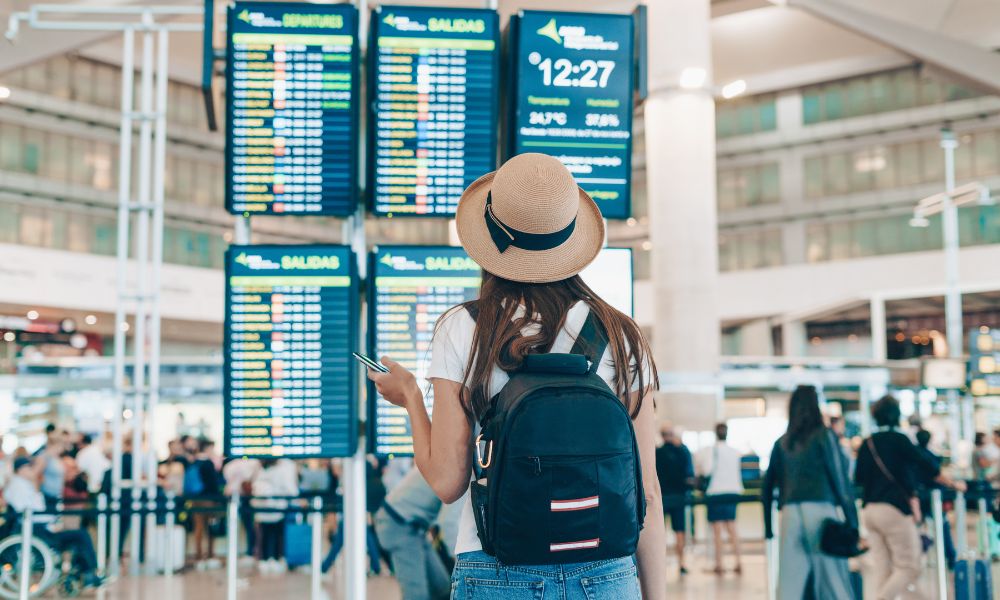Japan travel soars with weak yen – 1Cover Travel Insurance

Japan travel soars with weak yen – 1Cover Travel Insurance | Insurance Business Australia
Travel
Japan travel soars with weak yen – 1Cover Travel Insurance
However, young travellers lag in insurance coverage
Travel
By
Roxanne Libatique
Australian-based 1Cover Travel Insurance has reported a substantial increase in travel insurance policy sales for Japan, driven in part by the weakening yen.
These sales have surpassed pre-pandemic levels by 61%, according to the company.
Surge in travel insurance sales for Japan
Japan, which has become the fourth most popular overseas destination for Australians, saw a 126% rise in visitors during the year ending June 2023, based on figures from the Australian Bureau of Statistics (ABS).
The surge in travel has coincided with a favourable exchange rate, as the Australian dollar strengthened against the yen, encouraging more Australians to visit the country.
1Cover’s internal data revealed that travel insurance policy sales for Japan have outpaced pre-pandemic levels throughout 2024. January, which is peak season for winter sports in Japan, experienced a 24% increase compared to 2019. Meanwhile, July saw a 61% jump in sales, benefiting from the favourable currency conditions.
Natalie Smith, head of travel insurance at 1Cover, noted that Japan’s growing popularity reflects broader travel trends among Australian travellers.
“Not only is Japan accessible, safe, and appealing to all demographics, it’s increasingly becoming a more affordable travel spot due to the yen’s current favourable exchange rate. With Aussies intent on travelling, albeit on a tighter budget, Japan ticks all the boxes,” she said.
She highlighted that the demand for travel insurance surged mid-year and is expected to rise further by the year’s end.
Importance of travel insurance
While Japan is widely considered a safe destination, Smith stressed the importance of obtaining travel insurance due to potential unforeseen events.
“The Noto earthquake and airline collision in January of this year are a stark reminder that Japan, like any destination, can be privy to unforeseen disasters,” she said.
She also pointed out that Australia and Japan do not have a reciprocal healthcare agreement, meaning medical expenses in Japan can be significant without insurance coverage.
“Australia and Japan do not share reciprocal healthcare agreements, and medical treatment in Japan can be extremely costly. We would urge travellers to ensure they are covered ahead of their travels,” Smith said.
Rising ski-related insurance claims from Australians travelling to Japan
1Cover has reported a rise in claims from Australians traveling to Japan for skiing and snowboarding trips, reflecting the country’s popularity as a winter sports destination.
Smith said the claims typically involve hospitalisation and flight upgrades for the return journey.
“With so many Aussies planning ski trips to Japan, a significant number of claims we see from Japan are snow sport related. Snow sport injuries claims can cost roughly $20,000 on average, with patients usually requiring hospitalisation and a flight upgrade home,” she said.
She said that travellers planning to participate in snow sports should check their policies to ensure adequate coverage, as many standard travel insurance policies do not automatically cover these activities.
Most common travel insurance claims in Japan
According to Smith, the most frequent travel insurance claims from Australians visiting Japan involve medical expenses, lost or delayed luggage, and trip cancellations or delays. She noted that claims for delayed luggage have become more common as travel to Japan has increased.
“Should you fall ill or get injured, medical treatment can soar into the tens of thousands. Regardless of your travel budget, you can’t afford to go without travel insurance,” she said.
Gap in travel insurance among younger travellers
A separate report from 1Cover showed that younger Australians are leading the return to international travel, which has now reached pre-pandemic levels.
It found that 40% had travelled overseas in the past year, with the 18 to 29 age group being the most active.
Nearly 49% of respondents aged 18 to 29 reported taking an international trip in the last 12 months, compared to just 23% of travellers aged 70 and older. In addition, 76% of younger Australians said they are traveling as frequently as they did before the COVID-19 pandemic, with 18% indicating that their travel frequency had increased.
Related Stories
Keep up with the latest news and events
Join our mailing list, it’s free!






